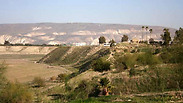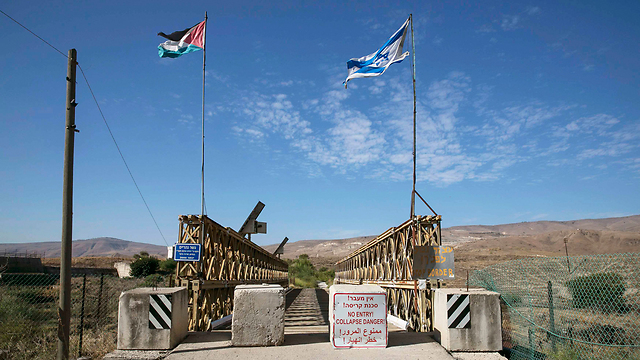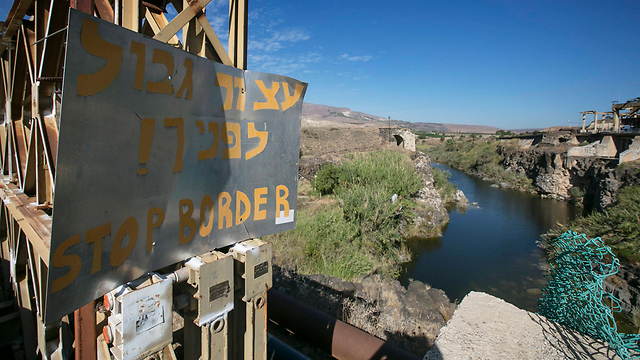

Jordan to nix parts of peace treaty with Israel, reclaim territories
King Abdullah announces he intends to cancel appendices to the peace treaty which would end Israel's lease of Naharayim and Tzofar in the Arava, effectively nixing Israel's sovereignty over these territories 25 years after peace agreement was first signed.
The appendices to the peace agreement concern mainly the lease of the Island of Peace in Naharayim and the Tzofar enclave in the Arava, leased by Israel since the signing of the peace treaty between the two countries nearly 25 years ago.
Israeli farmers have cultivated the land for many years, but following Jordan’s announcement Israel will be forced to return the land in question within a year, unless the appendices could be renegotiated.
The terms of the agreement state that 25 years after the initial signing, each party will be able to discontinue the lease of the land on one condition—it should be done one year in advance, and this Sunday marks 24 years since the treaty had been agreed upon.
King Abdullah’s announcement was made both in an official statement in Amman and in a statement the Jordanian embassy has forwarded to the Foreign Ministry in Jerusalem.
"We are practicing our full sovereignty on our land," Abdullah said. "Our priority in these regional circumstances is to protect our interests and do whatever is required for Jordan and the Jordanians."
The decision has reportedly come as a surprise to the officials in Jerusalem, as it would downgrade the peace treaty.
On March 13, 1997, seven girls from Beit Shemesh and Moshav Tzalfon, who were on a school trip to Naharayim, were murdered by Ahmad Daqamseh, a Jordanian soldier, who was later caught and sent to life in prison in Jordan. Daqamseh was released from prison a year ago after some members of the Jordanian parliament signed a petition demanding the soldier’s release.
Orna Shimoni, a member of Kibbutz Ashdot Ya'akov Meuhad, established a memorial site in honor of the victims, which is now part of the entrance complex to Naharayim.
King Abdullah has been facing pressure for some time to cancel the agreement with Israel. The Jordan Bar Association sent an official letter to Jordanian Prime Minister Omar Razzaz, urging him not to extend the Israeli lease of the lands. The Bar Association's recommendation received the support of 80 out of 130 Jordanian MPs.
Jordan’s announcement came in light of mass demonstrations and social media campaigns in support of the peace treaty’s cancellation.
However, some voices on social media expressed a more critical opinion of their government’s position.
"How is it possible that the area under Israeli control is so green, while only a few meters away the Jordanian lands are arid and desolate?" one user wondered.
Central Arava Regional Council head Eyal Bloom expressed concern by the Jordanian decision, saying "the agricultural lands in the Tzofar enclave are significant to the security of the area, the state, the livelihood of the residents and agriculture in the central Arava. This would mean the collapse of 30 farms in an area of some 1,400 dunams (346 acres)."
"It is unacceptable that after so many years, there would be such a huge disruptive change," Bloom added.
He called on Prime Minister Benjamin Netanyahu to resolve the crisis, saying the lands in question don't only serve for agriculture, but also "constitute a barrier between the populated areas of the Arava and Jordan, and they are critical, because of their location, to the security of the region and the state."

















